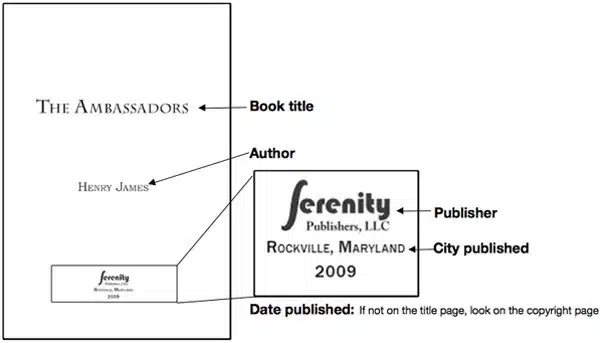Finding a publisher for your book can seem overwhelming, but the process becomes manageable with the right steps. Start by researching publishers who specialize in your genre. Tailor your submission to each publisher’s guidelines. Networking plays a crucial role. Attend writing conferences and join author associations to connect with industry professionals. Consider getting an agent to help you navigate the publishing world. Their expertise can open doors you might not reach alone.
How Can I Find a Publisher for My Book
Writing a book is a tremendous accomplishment, but finding a publisher for your work can be equally challenging. You might be wondering, can you publish a book on Amazon? This guide will help you navigate the complex process of getting your book published, breaking down the steps into manageable pieces. Let’s dive into the different aspects of finding a publisher for your book.
Understand the Publishing Landscape
Before diving into the search for a publisher, it’s essential to understand the different types of publishing options available. Recognizing the pros and cons of each can help you make an informed decision about which route to take.
Traditional Publishing
In traditional publishing, authors work with a publishing house that handles editing, design, marketing, and distribution. This model provides several benefits:
- Professional Editing: Your manuscript will undergo professional editing, enhancing its quality.
- Design and Layout: The publisher takes care of cover design and book layout.
- Distribution: Access to a wide distribution network, including bookstores and online retailers.
However, it can be challenging to secure a traditional publisher, especially as a new author.
Self-Publishing
Self-publishing puts the author in control of every aspect of the publishing process. Here are some advantages:
- Creative Control: You retain complete control over your book’s content, design, and marketing.
- Higher Royalties: Authors typically earn higher royalties per book sold.
- Faster Publication: The publication process is generally quicker compared to traditional publishing.
However, self-publishing requires significant time and effort to manage everything independently.
Hybrid Publishing
Hybrid publishing combines elements of both traditional and self-publishing. Authors typically invest some funds upfront, but also benefit from professional services like editing and marketing.
Research Potential Publishers
Once you’ve decided on a publishing route, start researching potential publishers. It’s essential to find publishers that align with your book’s genre and target audience.
Identify Genre-Specific Publishers
Look for publishers that specialize in your book’s genre. This ensures your manuscript will be reviewed by someone familiar with the market and trends within your genre. Utilize resources such as:
- Poets & Writers Directory of Small Presses
- Duotrope for a comprehensive list of publishers
- Industry-specific forums and writer’s groups
Check Submission Guidelines
Each publisher has specific submission guidelines. Carefully review these guidelines to ensure your manuscript meets their criteria. Common requirements include:
- Query letter
- Synopsis
- Sample chapters or complete manuscript
Evaluate Publisher Reputation
Ensure the publishers you consider have a good reputation. Look for reviews from other authors and check their track record. Reputable publishers should have a history of successfully publishing and promoting books.
Prepare Your Manuscript
Before submitting to a publisher, ensure your manuscript is polished and ready for review. This preparation includes several key steps.
Editing and Proofreading
Edit and proofread your manuscript meticulously. Consider hiring a professional editor to review your work. A well-edited manuscript increases your chances of getting noticed by publishers.
Formatting
Proper formatting is crucial. Ensure your manuscript follows industry standards for font, spacing, and margins. Consult submission guidelines for specific formatting requirements.
Write a Compelling Query Letter
A query letter introduces you and your book to potential publishers. It should be concise, engaging, and professional. Include the following elements:
- Introduction: Briefly introduce yourself and your book.
- Book Summary: Provide a concise summary of your book’s plot and main themes.
- Author Bio: Highlight relevant writing experience and credentials.
- Conclusion: Express your interest in working with the publisher and thank them for their time.
Submit Your Manuscript
After preparing your manuscript and query letter, it’s time to submit your work. Follow these steps to ensure a smooth submission process.
Send Query Letters
Submit query letters to your chosen publishers. Personalize each letter based on the publisher’s guidelines and interests. Avoid sending mass emails.
Track Submissions
Keep track of your submissions using a spreadsheet or dedicated tracking tool. Include details such as:
- Publisher name
- Date of submission
- Response status
Be Patient
Publishing can be a slow process. Response times vary, and receiving rejections is part of the journey. Stay patient and persistent.
Consider Literary Agents
If you’re struggling to find a publisher, consider working with a literary agent. Agents have industry connections and can help you secure a publishing deal.
Research Literary Agents
Similar to publishers, research agents who specialize in your genre. Use resources like:
Prepare a Query Package
Agents often require additional materials, such as:
- Query letter
- Synopsis
- Sample chapters
Submit to Agents
Submit your query package to selected agents and follow up as needed. Keep track of your submissions and responses.
Network with Industry Professionals
Building connections within the publishing industry can open doors and provide valuable insights.
Attend Writing Conferences
Writing conferences offer opportunities to meet publishers, agents, and fellow authors. Participate in workshops, panels, and networking events.
Join Writing Groups and Organizations
Joining writing groups can provide support and connections. Look for local or online groups that focus on your genre or writing interests.
Leverage Social Media
Use social media platforms to connect with industry professionals. Follow publishers, agents, and authors. Engage with their content and join relevant online communities.
Finding a publisher for your book requires research, preparation, and persistence. By understanding your publishing options, preparing a polished manuscript, and networking within the industry, you can increase your chances of securing a publishing deal. Keep pushing forward, refining your craft, and exploring new opportunities. The journey to publication may be challenging, but the reward of seeing your book in print makes it all worthwhile.
Frequently Asked Questions
Where should I start looking for potential publishers?
Begin by identifying publishers that specialize in your book’s genre. Research online, visit bookstores to see who publishes books similar to yours, and make a list of potential publishers. Check their submission guidelines on their websites.
How do I prepare my manuscript for submission?
Edit your manuscript thoroughly before submission. Ensure it’s free of grammatical errors and formatted according to the publisher’s guidelines. Prepare a compelling query letter, a synopsis, and any other materials requested by the publisher.
What is the best way to approach a literary agent?
Research literary agents who represent authors in your genre. Prepare a personalized query letter for each agent, briefly summarizing your book and explaining why you think they would be a good fit. Follow their submission guidelines precisely.
How can attending writing conferences help in finding a publisher?
Writing conferences provide opportunities to network with literary agents, publishers, and other authors. Attend workshops, participate in pitch sessions, and use the chance to make connections that could lead to publishing opportunities.
Should I consider self-publishing if I can’t find a traditional publisher?
Self-publishing can be a viable option if you’re unable to secure a traditional publisher. It gives you more control over the publishing process and potentially higher royalties, but it also requires you to handle marketing, distribution, and other aspects of publishing.
What are the key elements of a successful book proposal?
A successful book proposal should include a strong query letter, a detailed synopsis of the book, a market analysis, a section on your target audience, and sample chapters. Provide clear reasons why your book will succeed in the market and why the publisher should invest in it.
Final Thoughts
To find a publisher for my book, research potential publishers who specialize in your genre. Attend writing conferences and networking events to make connections. Refine your query letter and book proposal to stand out. Consider working with a literary agent to navigate the process. Maintain persistence and patience throughout your journey.

